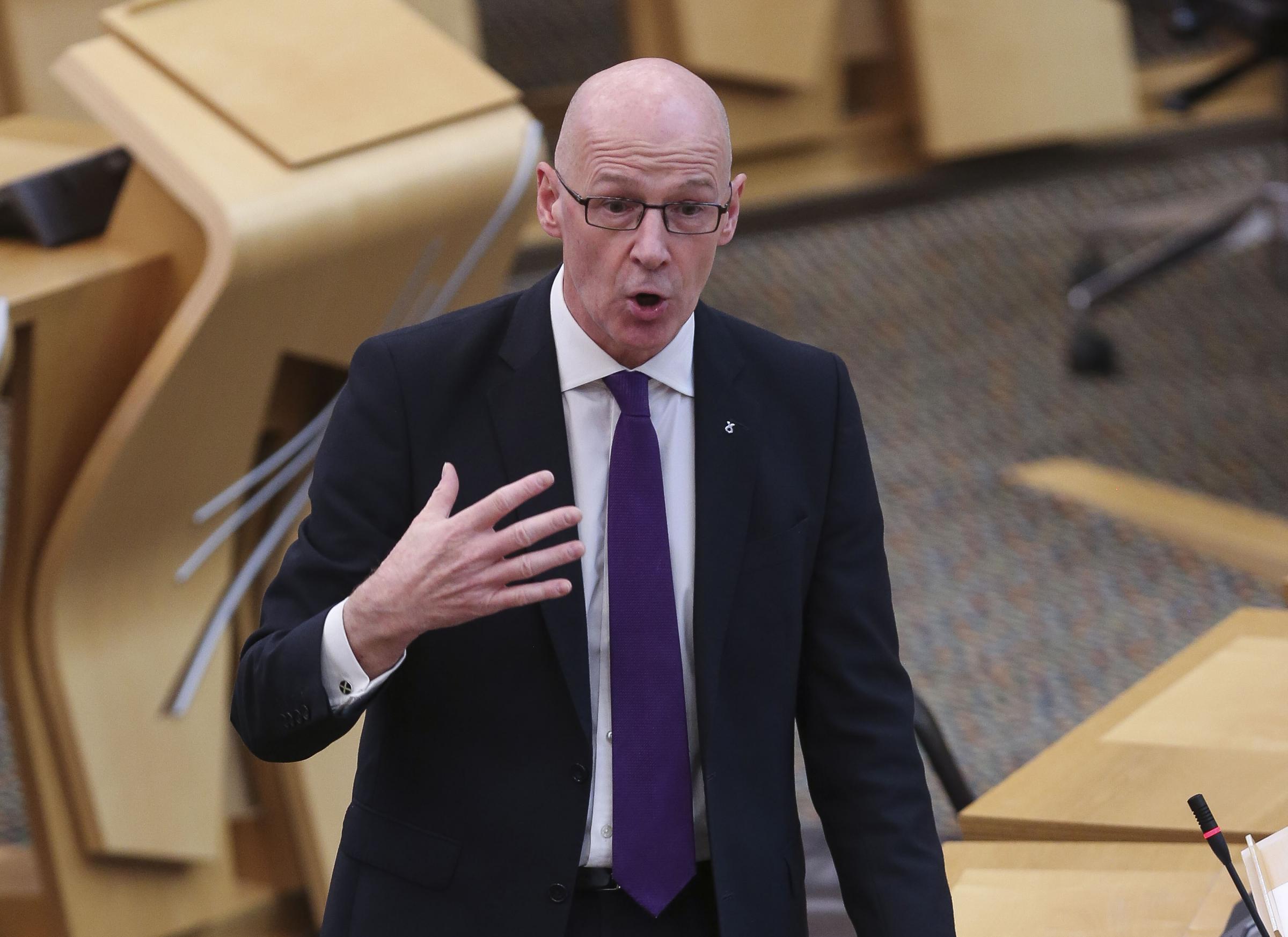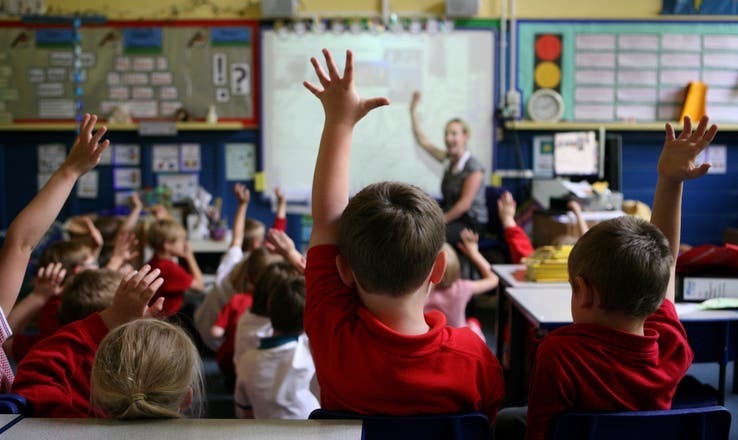
SCOTLAND is in a “ludicrous constitutional position”, Deputy First Minister John Swinney has said as he vowed to consult on changes to two bills knocked down by the UK Supreme Court.
The United Nations Convention on the Rights of the Child (Incorporation) (Scotland) Bill and the European Charter of Local Self-Government (Incorporation) (Scotland) Bill were passed unanimously by MSPs at the end of the last parliamentary session.
Both Bills would enter UN treaties into Scots law.
However, five judges at the Supreme Court declared the bills sought to legislate outwith the powers held at Holyrood.
The decision has caused a constitutional wrangle between London and Edinburgh, with Swinney saying the Scottish Secretary, Alister Jack, has failed to engage with them since the ruling.
Jack wrote to Swinney as the UNCRC Bill made its way through Holyrood, warning it may be outside the competence of Holyrood and suggesting potential amendments that would prevent legal challenge. Those amendments were not adopted.
In a statement to Holyrood on the future of the two bills, Swinney said the Scottish Government would engage “with key stakeholders” over the next three weeks on the necessary changes, as well as helping Green MSP Mark Ruskell, the member responsible for the local government bill, to do the same.
Swinney said part of the issue was the impact the bills would have on pre-devolution UK legislation that only impacted Scotland such as the Education (Scotland) Act 1980.
“Although that is legislation that relates to our own children, in our own schools, in our own country, it is Westminster legislation, so we cannot – following the Supreme Court judgement – apply the UNCRC to it,” he said.

“That is the ludicrous constitutional position that Scotland finds itself in.”
Swinney went on to say that the UK Government had refused to expand the devolution settlement to allow for the bills to be covered.
“At every stage of the process, they have acted as a barrier to this Parliament legislating to protect the rights of children in Scotland,” he said.
When questioned by Scottish Tory deputy leader Meghan Gallacher why the Scottish Government pushed ahead with the UNCRC Bill despite warnings about its competence, Swinney reminded the MSP her party voted for it at the time.
“It looks like the Conservative Party are trying to suggest that they only did things because I told them it was the right thing to do, but I genuinely don’t think I command such influence,” he added.
“Members of Parliament looked at this, it was thoroughly scrutinised by members of Parliament.
“Parliament wanted to have the most ambitious set of provisions in place to protect children and young people and now the Conservative party is running away from a commitment they made only a little while ago.”
Scotland’s Children and Young People’s Commissioner Bruce Adamson said it was “disappointing” it took eight months for the Scottish Government to lay out how it would respond to the ruling.
“Every single day of delay is a day when children’s rights are not fully protected,” he said.
Adamson added: “All children will benefit from the protections of their rights being put into law, but it is particularly important for those children whose rights are most at risk.
“It is even more urgent for Scotland to secure children’s rights given the UK Government’s recently announced plan to weaken the protections in the Human Rights Act.”
A UK Government spokesperson said: “The UK Government made suggestions during the passage of the UNCRC Bill about how it could be brought within the Scottish Parliament's existing powers, which were unfortunately rejected by Scottish Ministers. The Supreme Court subsequently determined that the legislation was not within the legislative competence of the Scottish Parliament.
“We have continued to engage constructively with the Scottish Government since and we stand ready to engage further if the Scottish Government wants to bring their Bill within the devolved powers of the Scottish Parliament, which we fully respect and will maintain.”







